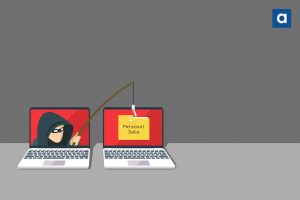Phishing Email

All you need to know about phishing emails:
Introduction:
Phishing refers to a virtual attack via which the hackers try to obtain your sensitive information such as bank account details. Recently, these hackers have learned how to design phishing emails in such a manner that it gets difficult for you to understand whether the email is legitimate or a scam.
Some of the most common ways of how phishing works are:
Spear phishing: It is a type of phishing in which the hackers are focused and targeted towards a specific audience.
Whaling: It is a type of fishing that focuses on people such as business directors so that the effect created is un-parallel.
Business email compromise (BEC): It is a type of phishing email in which the sender tries to present themselves as a trusted sender to try and collect sensitive financial information from you.
Ransomware: As the name suggests, hackers are able to obtain your information and encrypt it to demand ransom to decrypt the data.
Once the hackers get hold of your information, they are able to use that information for purposes such as:
- To acquire finances using your name and details.
- Transferring money from your bank account and hacking your credit cards.
- To use your account to send phishing emails to other accounts and try and hack them.
How to identify an email as a phishing email?
Phishing these days has become very common, and people are often able to recognize a phishing email with ease. However, we should remember that hackers have also found a way to make their email seem more legitimate, which is why we should always remember these points to help us identify an email as phishing content:
- When an email asks you to provide your personal information to a third party or a non-trusted source.
- When you receive a notification for account verification to avoid account suspension.
- When you are offered a deal that is too good to be true.
- When you receive emails requesting to make monetary donations under your name.
Unfortunately, with the passage of time, there have been a lot of developments in the phishing content that we receive on our emails. Nowadays, hackers are often able to breach the security and compromise the domains of companies such as Bank of America.
Since these developments have allowed the hackers to create a more promising content, it is becoming increasingly difficult for an average person to identify these scams and protect themselves. It is common for hackers to send you an email from an official email address and convince you to share your information with them.
However, fortunately, not everything is lost. There are numerous ways how you can identify if the email you received is from the actual company or is a phishing content sent to you in an attempt to acquire your personal and sensitive information.
How can you protect yourself from phishing?
One of the essential ways to protect yourself from falling into the trap of phishing is to understand and remember the way these emails operate to try and collect your information.
Since everything is an attempt to acquire your personal details, you should always remember the following points:
Avoid providing personal information: Every legitimate company refrains from asking you for your private information, especially in a written format. If you come across any email irrespective of whatever domain you receive that email from, you should always protect yourself and avoid sharing any personal information.
Phishing emails always create a sense of urgency: While these emails seem accommodating and polite in tone, they often try to lure you towards an urgent task such as requesting an immediate response or asking you to open the link given in the email. You can use this sense of urgency and redirection request to identify them as a spam email.
Emails with attachments: The majority of the virus is sent through attachments. Always remember to save the attachment on your computer and scan it with an anti-virus before you open it.
Avoid clicking on links: Hackers are smart. They often create links that are extremely difficult to identify as phishing. It is best that if you receive a link in an email, you should copy the link and try to search for the URL using your search engine. Via this, you will be able to identify if the link you had was a potential threat. It is also known as link masking.
Monitor your transactions: Despite avoiding falling into the trap, it is always best to keep an eye on your operations to ensure that you did reveal any personal detail by mistake.
How is Lexington computer support beneficial for you?
With a team of highly qualified individuals, we specialize in data security services. All of our services are tailor-made, which allows us to provide precisely what you are looking for.
If your belief there is a threat to your personal information and data can be compromised, we are here to help you prevent that possibility.
You can avail of our password management services to install a password at multiple steps of the way. With the help of increased password requests, you can sleep comfortably without having to worry about jeopardizing your information.
Additionally, you can also make use of our email security system to clear and discard any potential phishing emails that may hack your data.
To enhance your computer security, we can install a two-factor authentication system that will prompt an answer or a code to let you continue every time you try to install an application, download a file, or make necessary changes to your computer.
With us on board with, there is nothing that you need to worry about. We ensure that we will always help you in staying safe from virtual viruses .
